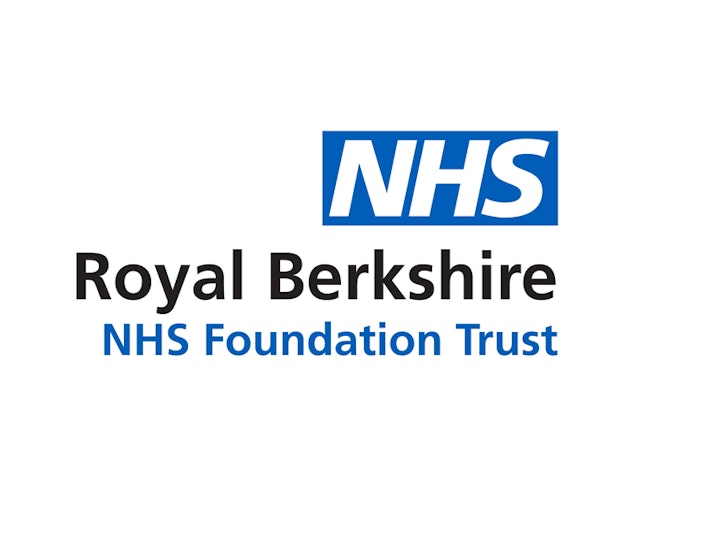Ros Penny - Royal Berkshire NHS Foundation Trust
Ros Penny, Deputy Director of Organisational Development explains why Royal Berkshire NHS Foundation Trust chose Henley as the apprenticeship training provider

Ros, tell us how the Trust came to choose to work with Henley on the Apprenticeship Levy programme
‘In my role as Assistant Director of Organisational Development at the Trust, I wanted a programme that would be far above the pedestrian courses offered by so many providers in the marketplace.
‘We were already in discussion with the University of Reading regarding nursing programmes, and so when the subject of how we should use the levy for leadership development came up, Henley was an obvious candidate. Henley was local, had the required level of knowledge and expertise, and added a huge measure of prestige to the partnership, so we started talking to them about co-creating a programme which would help us to achieve our specific objectives.
‘It was immediately clear that Henley’s approach was going to be radically different from anyone else we were considering. They talked about ‘the art of possible’ and convinced us that we’d been viewing the apprenticeship opportunity in the wrong way.
‘Rather than grappling with the logistics of our situation, they encouraged us to look at our strategic objectives, and design something around that, combining existing modules with various tailor-made ones. They were the only provider that offered to co-create the programme with us, and it seemed to be logical and exciting.’
With such a mix of people working in the Trust, how did you select who would take part in the first programme?
‘Right from the start, we said we wanted to be as inclusive as possible, so we approached our BAME (black, Asian and minority ethnic) staff and immediately filled 17 of our 50 places. We knew the nursing and administrative staff would also be keen, but we hadn’t anticipated how enthusiastic the doctors would be, and we ended up with almost a hundred applications.
‘So we looked at who was crucial to the pipeline, who were considered as high potentials, and who was involved in specific, transformational projects. We still wanted a balance, so we had to reject some pretty senior consultants, and they aren’t generally used to rejection!
‘That only served to increase the interest and demand for places, so we already have a long waiting list for the second cohort.
How has the programme complimented the Trust’s other learning resources?
‘In 2014, the hospital was rated as ‘requiring improvement’ and a study of our leadership by Deloitte highlighted a number of shortcomings in our organisation development, learning development and succession planning. There were significant issues.
‘Subsequently, I started to put in place a range of programmes across all levels. Three years on, we’ve created an inclusive culture of learning, heightened psychological awareness and resilience. The Henley programme builds on all this, by putting each individual at the centre of their learning experience.’
How have you found working with Henley through the different stages?
‘There have been a few teething problems, but we expected that this would be the case with such a pioneering approach. A lot of this resulted from the external documentation, provided by the Skills Funding Agency, much of which was, frankly, designed for young apprentices and not fit for our purpose.
‘We also learned a lot of lessons about how – and how not – to schedule learning assignments with people who can be on call 24/7, and those lessons will stand us in good stead for future programmes.’
‘With a cohort made up of everyone from senior doctors to junior nurses, not all of whom had any experience of academic qualifications, let alone reflective practice, it’s been a baptism of fire for many of them, and they’ve taken a while to adapt to different ways of thinking. The Henley team has been a great help in integrating such a diverse cohort, and it has developed into a really tight-knit group.
What immediate impact have you noticed?
‘It’s been brilliant; people at all levels are talking about change, and we’re already seeing positive shifts in behaviour. Clinicians, for example, are moving away from applying purely rational thinking to a more empathetic and rapport-oriented approach when managing millennials. The whole approach to collaborative team working has changed – for the better.
‘And the individuals are visibly growing in confidence. At least four that I know of have been promoted into roles they simply wouldn’t previously have dared apply for.’
What has Henley brought to the partnership?
‘They’ve brought enormous credibility to the programme, and their professional approach to helping students with their continuous development and creation of portfolios has been invaluable.
‘The learning materials they provide are the best, most up-to-date materials available, created by world-class researchers, many of whom work at Henley. It’s a far cry from the outdated frameworks and theories we’ve been fed from other L&D providers over the years.
‘Also, the Henley team’s willingness to change, and to be flexible about the application of learning to our own environment and needs has been a breath of fresh air.’